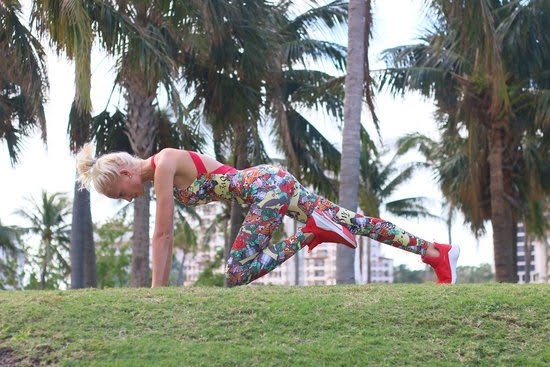Are you wondering how to be physically fit without exercise? Many people believe that physical fitness is solely attainable through rigorous workouts and intense exercise routines. However, the truth is that achieving physical fitness goes beyond traditional forms of exercise. This article will explore various ways to achieve physical fitness without having to engage in traditional exercise methods.
While exercise certainly plays a significant role in physical fitness, it is not the only factor to consider. Nutrition, daily physical activity, adequate sleep, stress management, mindfulness and meditation, natural remedies, and maintaining a healthy environment all contribute to overall physical wellness. By understanding the misconception of physical fitness and exercise, we can explore alternative methods of achieving and maintaining our physical health.
In the following sections, we will delve into each of these factors in detail, providing insights on how they can positively impact our physical well-being while minimizing the need for conventional exercise. Understanding the holistic approach to physical fitness can empower individuals to make informed choices that contribute to their overall health and wellness.
The Role of Nutrition in Physical Fitness
When discussing how to be physically fit without exercise, it is essential to highlight the role that nutrition plays in achieving and maintaining physical wellness. The food that we consume provides the foundation for our overall health, including our physical fitness. A balanced and nutrient-dense diet is crucial for supporting bodily functions, promoting muscle growth and repair, and providing the energy needed for daily activities.
One key aspect of nutrition in physical fitness is ensuring that individuals are consuming the right combination of macronutrients – carbohydrates, proteins, and fats. Carbohydrates serve as the primary fuel for the body, while proteins are essential for muscle repair and growth. Healthy fats play a role in hormone production and overall cellular function. Additionally, incorporating a variety of vitamins and minerals from fruits, vegetables, and whole foods is important for supporting the body’s various systems.
In addition to macronutrients, hydration is another vital component of nutrition for physical fitness. Proper hydration is essential for regulating body temperature, supporting digestion and nutrient absorption, lubricating joints, and transporting nutrients throughout the body. Therefore, focusing on consuming an adequate amount of water daily is crucial for overall physical well-being.
| Nutrient | Role |
|---|---|
| Carbohydrates | Primary fuel for the body |
| Proteins | Essential for muscle repair and growth |
| Fats | Supports hormone production and cellular function |
Incorporating Physical Activity Into Daily Routine
Physical fitness is often associated with rigorous exercise routines, but there are alternative ways to maintain physical wellness without the need for traditional exercise. By incorporating physical activity into daily routines, individuals can still achieve and sustain a healthy lifestyle.
One way to do this is by opting for active transportation, such as walking or cycling, instead of driving whenever possible. Additionally, taking the stairs instead of the elevator or engaging in household chores that require movement can also contribute to staying physically active.
Another way to integrate physical activity into daily routines is by prioritizing movement during leisure time. This can include participating in recreational activities like dancing, gardening, or playing outdoor games with family and friends.
Even simple activities such as stretching or taking short breaks to walk around during long periods of sitting can make a significant difference in one’s physical fitness. Finding enjoyable and practical ways to stay active throughout the day is key in achieving and maintaining overall physical wellness.
Furthermore, individuals can make use of technology and tools that promote movement even during sedentary activities. For example, desk bikes or standing desks allow individuals to continue working while engaging their muscles. Additionally, setting reminders to take regular movement breaks while working on computers or watching television can help prevent prolonged periods of inactivity and contribute to improving physical fitness.
| Ways to Incorporate Physical Activity | Examples |
|---|---|
| Active Transportation | Walking, cycling |
| Leisure Time Activities | Dancing, gardening, playing outdoor games |
| Utilizing Technology | Desk bikes, standing desks |
The Importance of Adequate Sleep for Physical Wellness
In today’s fast-paced world, many people lead busy lives that often result in not getting enough sleep. This can have a significant impact on physical wellness, as adequate sleep is essential for overall health. Here are some important aspects of why sufficient sleep is crucial for physical fitness:
1. Restoration and Repair: During sleep, the body undergoes repair and restoration processes. This includes muscle growth, tissue repair, and release of growth hormones, which are vital for physical fitness.
2. Energy Levels: Lack of sleep can lead to decreased energy levels and fatigue, making it difficult to engage in physical activities or maintain an exercise regimen. Sufficient rest allows the body to recharge and feel more energized.
3. Hormonal Balance: Proper sleep helps to regulate hormones that are linked to appetite and metabolism, such as leptin and ghrelin. Imbalances in these hormones can contribute to weight gain and hinder physical fitness goals.
In order to be physically fit without exercise, it is essential to prioritize getting enough sleep each night. By ensuring adequate rest, individuals can support their overall health and well-being, setting the stage for success in other areas of their wellness journey.
Additionally, implementing good sleep hygiene practices such as establishing a regular bedtime routine, creating a comfortable sleeping environment, and avoiding stimulants before bedtime can also contribute to improved physical wellness.
Stress Management and Its Impact on Physical Health
Many people believe that physical fitness revolves solely around exercise, but the reality is that there are multiple factors that contribute to overall well-being. One of these factors is stress management. The impact of stress on physical health cannot be overstated, as high levels of stress can lead to a host of negative effects on the body. From elevated blood pressure to weakened immune function, chronic stress can take a significant toll on one’s physical wellness.
Learning how to manage and reduce stress is essential for achieving physical fitness without traditional exercise. There are various techniques and practices that can help individuals cope with and reduce stress levels, such as deep breathing exercises, yoga, and mindfulness meditation. These practices not only alleviate stress, but they also promote relaxation and improve overall mental and physical well-being.
In addition to specific stress-reducing practices, maintaining a healthy lifestyle that includes regular sleep patterns, balanced nutrition, and regular physical activity also plays a crucial role in managing and reducing stress. When the body is properly nourished, well-rested, and physically active, it is better equipped to handle stressful situations and maintain overall physical health.
Therefore, while exercise may not be the primary focus in achieving physical fitness without exercise, managing stress effectively is certainly a key component in achieving this goal.
The Power of Mindfulness and Meditation for Physical Fitness
In today’s fast-paced world, the idea of achieving physical fitness without traditional exercise may seem impossible to some. However, the power of mindfulness and meditation should not be overlooked in the quest for overall physical wellness. These practices can have a profound impact on one’s physical health, even in the absence of rigorous workouts.
Mindfulness and Its Physical Benefits
Mindfulness involves being fully present in the moment and can lead to a greater awareness of one’s body and its needs. By practicing mindfulness, individuals can develop a deeper connection with their physical selves, leading to better self-care habits. This heightened awareness can also result in healthier choices when it comes to nutrition and physical activity.
The Impact of Meditation on Physical Well-Being
Meditation has been shown to reduce stress levels, lower blood pressure, and improve overall physical health. By quieting the mind and focusing on breathing or positive affirmations, individuals can experience a release of tension in the body, which can contribute to improved flexibility, reduced muscle tension, and an overall greater sense of well-being.
Integrating Mindfulness and Meditation Into Daily Life
Incorporating mindfulness and meditation into a daily routine does not have to be time-consuming or complicated. Simple practices such as deep breathing exercises, mindful eating, or taking short meditation breaks throughout the day can all contribute to improved physical fitness without traditional exercise. Making these practices a priority can lead to long-term benefits for one’s overall health and wellness.
By prioritizing mindfulness and meditation as part of an individual’s approach to physical fitness, it is possible to achieve a sense of well-being that goes beyond simply meeting exercise goals. The power of these practices should not be underestimated when considering holistic approaches to achieving physical wellness.
Utilizing Natural Remedies for Physical Well-Being
When it comes to physical fitness, many people overlook the power of natural remedies in achieving overall well-being. While traditional exercise is often the primary focus, incorporating natural remedies can make a significant impact on physical health.
Herbal Supplements and Remedies
One way to achieve physical fitness without traditional exercise is by utilizing herbal supplements and remedies. Natural ingredients such as turmeric, ginger, and ginseng have been used for centuries to promote physical wellness. These supplements can help reduce inflammation, boost immunity, and improve overall health without the need for intense exercise.
Essential Oils for Physical Wellness
Another natural remedy to consider for physical well-being is the use of essential oils. Oils such as lavender, eucalyptus, and peppermint have various benefits for the body, including reducing stress, improving sleep quality, and relieving muscle tension. Incorporating these oils into daily routines through aromatherapy or topical application can contribute to overall physical fitness.
Holistic Practices for Physical Health
In addition to herbal supplements and essential oils, holistic practices such as acupuncture, chiropractic care, and massage therapy can also contribute to physical wellness without traditional exercise. These alternative therapies can help alleviate pain, improve mobility, and enhance overall physical function. By embracing natural remedies and holistic practices, individuals can achieve physical fitness without relying solely on traditional forms of exercise.
Maintaining a Healthy Environment for Physical Wellness
A healthy environment plays a crucial role in physical wellness, and it goes beyond the standard idea of clean air and water. Creating a space that promotes physical fitness without exercise involves several key elements. Here are some ways to maintain a healthy environment for physical wellness:
- Green Spaces: Surrounding yourself with nature can have a positive impact on your physical health. Whether it’s going for walks in the park, gardening, or simply spending time outdoors, being in green spaces can reduce stress, boost mood, and encourage physical activity.
- Natural Light: Exposure to natural light is essential for regulating the body’s internal clock and improving overall well-being. It can also increase productivity, enhance sleep quality, and promote vitamin D production.
- Decluttering: A clutter-free environment can contribute to mental clarity and reduce stress levels. It can also create more space for physical activities such as yoga or stretching.
- Air Quality: Poor air quality can lead to various health issues, including respiratory problems and allergies. Maintaining good indoor air quality through proper ventilation, air purifiers, and removing pollutants can significantly impact physical wellness.
Creating a healthy environment that prioritizes physical wellness without traditional exercise is within reach by incorporating these elements into your daily life. By making these simple changes in your surroundings, you can positively impact your overall health and well-being while achieving physical fitness without engaging in formal exercise routines.
Conclusion
In conclusion, achieving physical fitness without traditional exercise is not only possible but also achievable through various lifestyle changes and habits. By focusing on proper nutrition, incorporating physical activity into our daily routines, getting adequate sleep, managing stress effectively, practicing mindfulness and meditation, using natural remedies, and maintaining a healthy environment, we can improve our physical well-being without engaging in structured exercise.
It’s important to recognize that being physically fit does not necessarily mean spending hours at the gym or participating in high-intensity workouts. The key lies in making sustainable changes to our daily habits and lifestyle choices. By prioritizing proper nutrition and making conscious efforts to move more throughout the day, individuals can make significant strides towards achieving physical fitness without traditional exercise.
Furthermore, by taking control of factors such as sleep quality, stress levels, mindfulness practices, natural remedies, and environmental influences on physical wellness, individuals can create a holistic approach to their overall health. It’s not about being perfect or following a strict regimen; it’s about making small yet impactful changes that add up to significant improvements in one’s physical fitness.
Ultimately, by embracing these principles and incorporating them into our lives consistently, we can achieve physical fitness without relying solely on traditional forms of exercise.
Frequently Asked Questions
Can You Be Physically Fit Without Exercise?
Being physically fit without exercise is difficult, as regular physical activity is essential for maintaining cardiovascular health, muscle strength, and flexibility. While a healthy diet plays a role in overall wellness, it’s not a substitute for exercise.
How Can I Become More Physically Active Without Exercise?
There are many ways to increase physical activity without traditional exercise. Simple changes like taking the stairs instead of the elevator, walking or biking instead of driving short distances, and standing up and moving around during the workday can all contribute to a more active lifestyle.
How Can I Be Physically Strong Without Working Out?
You can build physical strength outside of traditional workouts by incorporating more movement into your daily routine. Activities like gardening, carrying groceries, and doing household chores require strength and can help maintain or build muscle mass over time. Additionally, incorporating bodyweight exercises into your day-to-day activities could also help maintain strength without formal workouts.

Passionate about providing useful information to anyone with an interest in the field of Personal Training, I strive to pass on to our readers quality information and to answer any questions about Personal Trainers, the work they do and how to become one.





